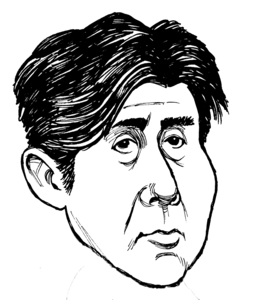NAME Jerry BrownOFFICEGovernor |


|

|


|
NAME Jerry Brown |
OFFICE Governor |
Since retaking the governor’s office in 2010 after a 28-year timeout, Jerry Brown has demonstrated the value of experience and maturity. He has been a solid leader, steering California out of turmoil and directing the attention of lawmakers and voters toward the issues that should top the state’s agenda: fiscal stability, water security, economic growth, environmental leadership and sustainability, a manageable criminal justice system, better schools, a rejiggering of the state-local relationship. His position in California history would be secure based on longevity in office alone, but in addition, he has been a very good governor.
But a great one? Not quite yet. Too many of his achievements remain untested and too many of his initiatives have yet to see completion. In 2012, for example, he used his remarkable political wizardry to persuade Californians to tax themselves to bail out their state government. But was it wizardry more of the marketing than the economic variety? It could still prove to be so if, as Brown leaves office at the end of his current and final term, those Proposition 30 taxes expire with a budget as structurally unsound as the one in place when he took office. A great governor does not provide order and prosperity only for the brief period he is in office and leave things to fall apart once he’s gone. He makes improvements that will outlast him.
| CATEGORY | GRADE |


|
|


|
|


|
|

|
|


|
|
Overall |


|
Brown is partway there, in large part due to his achievements of 2014 in sound budgeting, in water and in criminal justice.
It is ironic, perhaps, that many of those achievements were merely twists on efforts by his unlikely predecessor, Republican Gov. Arnold Schwarzenegger. A decade ago, Schwarzenegger proposed and voters adopted, in the form of Proposition 58, a supposedly tough budget reserve to provide a reservoir of cash saved up during years of plenty. It was to meant to address the state’s fundamental challenge: National economic boom years become California super-booms, leading to unsustainable spending, while national recessions turn into California meltdowns in the form of plunging credit ratings, panicked raids on special funds, attempted shutdowns or sell-offs of state assets like buildings and parks, and political uprisings of the type that led to Schwarzenegger’s bizarre victory in the recall of Gov. Gray Davis.
The fund proved unequal to the task, and voters rejected tougher reserve plans. Last year, though, Brown brokered some key changes and, more important, put his own political magic to work, getting Democratic as well as Republican voters to sign on to Proposition 2. Winning approval of the so-called rainy-day fund was an important political feat, but we won’t know how well it will actually work until the economy tanks again, revenues dry up and lawmakers fight over budget cuts.
Brown’s Proposition 1, last year’s water bond, was a trimmed-down version of a measure pulled together during Schwarzenegger’s tenure but repeatedly postponed due to a seemingly perpetual quandary: Getting the political buy-in from all factions necessary to secure passage meant larding up the bond so much that it was unaffordable. This time the worsening drought supplied a sense of urgency, but Brown once again brought his own political skills to bear, hiding his hand until late in the process, then laying out his terms and pressing lawmakers to send voters a package — and campaigning hard to get it passed. His tactics worked, and the state now has money for a variety of needed water projects ranging from dams or other storage to recycling and efficiency.
But Proposition 1 exhibits the reverse side of Schwarzenegger’s bond quandary: It’s far too small to accomplish much and can be considered only a tiny down payment on the water projects California must roll out over the coming decades. Brown’s most productive contribution to water policy may be in lower-profile actions, such as his appointment of former Environmental Protection Agency administrator Felicia Marcus to head the State Water Resources Control Board at precisely the moment the state needed a stronger, savvier board, and his deftness in steering the state on a middle course between complacency and panic to press for conservation in the midst of the drought.
Want to weigh in?
Leave a comment below, tweet us your thoughts @latimesopinion #gradeyourgov, or find us on Facebook.
The biggest water project of all — a bypass of the Sacramento-San Joaquin River Delta, to bring Sacramento River water directly to the California Aqueduct and the cities it serves without it first running through the delta — confounded Schwarzenegger and every governor who came before him, including Brown’s father, Gov. Edmund G. “Pat” Brown, the architect of the California Water Project. Voters rejected Jerry Brown’s earlier attempt, the so-called peripheral canal, in 1982, and just a few months later rejected Brown himself in his quest for a U.S. Senate seat. So to get the job done this time, Brown may need an extra dose of political wizardry, coupled with a solid, repeated explanation to Californians why the project is the proper way to go.
So far, he is falling short. His most memorable argument for the delta project came in a comment he made to opponents in May: “Shut up.” We need something a little more solid.
Likewise, with the high-speed rail project he proposed in the 1980s, and that Schwarzenegger promoted and voters approved in 2008, Brown has not been at his best when trying to talk Californians out of some buyer’s remorse. “My inclination is not to spend a thing,” Brown said at a high-speed rail event. “But on the other hand, I like trains.”
OK, governor, sure: funny, witty, iconoclastic. But seriously, when will you remind us why we need to build this train?
Brown has critics in some younger Democrats who see him less as a master strategist who hides his cards than as an elder, or even elderly, statesman who remains so checked out of daily legislative matters that he fumbles his own priorities. That’s what led to this year’s climate bill being weaker than it might have been, one argument goes, and to a special session on transportation that has produced nothing. But it may be that Democrats are simply frustrated with a man who, although technically one of them, has always been a party unto himself and follows a political instinct that so far has served him, and the state, well.
Brown often seems at his best when he’s standing alone, or nearly so. He got lawmakers to accept his plan for criminal justice realignment, giving counties responsibility for many of the state’s felons, but had few people applauding him during the early months while observers waited to see whether crime would increase. It didn’t.
He also is adept at dealing with policy wonks, a skill that produced the groundbreaking “local control funding formula” that gives schools a measure of independence and flexibility and drives substantially more money to schools that serve low-income students.
His greatest achievement so far may be his reduction of the state prison population, ending, at least for now, federal court pressure and putting the state on the path to a wiser and more effective use of its limited prison space.
With Brown at the helm, the state has an unconventional but responsible adult in charge who may or may not get his important work done before he leaves office for the last time in January 2019, and may or may not leave behind him an articulable and workable philosophy of government or vision for the future. Californians should root for him to become a grade-A governor, because in doing so, they would be rooting for a brighter future for their state.
Get the Essential California newsletter delivered to your inbox
NAME Kevin de LeónOFFICESenate Leader |

|

|

|
NAME Kevin de León |
OFFICE Senate Leader |
When Kevin de León took over as president pro tem of the California Senate a year ago, he inherited a bruised legislative body plagued by crisis and scandal. Two senators had been indicted for corruption. A third had been convicted of perjury and voter fraud and had stepped down the previous month. And a fourth had been arrested for driving under the influence after drinking with other legislators on a Capitol balcony.
The Senate bureaucracy was in disarray too. Two of the three top staffers had just left amid allegations of nepotism and favoritism. The third, top Senate administrator Greg Schmidt, was retiring. De León was welcomed to his new job by a $3.5-million structural deficit in the Senate’s budget. One of his first actions was to lay off 39 employees. Not a great way to earn popularity points.
| CATEGORY | GRADE |

|
|

|
|


|
|
 |
|

|
|
Overall |

|
Today, that dark cloud over the Senate has dissipated. The bad actors are gone or rehabilitated, the top staffers have been replaced and the public has moved on. But had there been just one misstep or sniff of scandal during the year, every detail of the terrible times might have been revived. It’s to the credit of De León (D-Los Angeles) that it didn’t happen.
In fact, the upper house of the Legislature didn’t just survive, it logged a pretty good year. Senators showed a calm unified front, in sharp contrast to the chaos in the Assembly. They introduced and passed crucial bills — eventually approved by the Assembly and signed by Gov. Jerry Brown — that will have long-lasting implications for Californians, including one that ended the personal belief exemption for vaccines for public school children, and a right-to-die law for terminally ill people.
Those two bills opened emotionally charged but necessary conversations that a less bold Senate leader might have tried to avoid, especially if he was focused — as De León was — on his own potentially polarizing proposal. Among the year’s most meaningful and controversial bills was his SB 350, a far-reaching proposal to reduce carbon emissions. Although scaled back in the final days of the last session, it will still have a powerful impact on the state.
How much credit does De León deserve for the turnaround of Senate? A lot, actually. He’s shown strong leadership skills and has the right mix of confidence, energy and engagement. His experience as a legislator has served him well in his new position, which he has used to push for consequential legislation. When the right-to-die bill faltered in an Assembly committee, he was an active supporter of its reintroduction in the special healthcare session, which ultimately led to its passage.
During his four years in the Assembly and his five in the Senate, De León has held firmly to a clear and consistent goal — to lift up working and low-income Californians — that informs much of his work in the capital. The result can be seen in the bills he’s authored, such as an automatic retirement savings plan for all working Californians (it’s still in the study phase). Among them are several that address environmental issues in poor communities; a good example is SB 535 in 2012, which required a quarter of the cap-and-trade revenue in the state’s greenhouse gas reduction fund to benefit disadvantaged communities.
SB 535 typifies how De León has approached climate change, one of the state’s most pressing issues and one of De León’s top legislative priorities. His commitment to tackling the problem is especially significant given that his Latino legislative colleagues representing urban areas have in the past tended to view environmental initiatives with skepticism.
Want to weigh in?
Leave a comment below, tweet us your thoughts @latimesopinion #gradeyourgov, or find us on Facebook.
He has taken steps to make the Senate’s activities more accessible to the public, by streaming more hearings and committee meetings and holding more than 100 public oversight hearings on such topics as the May oil pipeline spill off the Santa Barbara coast and the use of psychotropic drugs on children in foster care. And he actively sought to reduce the number of unnecessary or frivolous bills coming out of the Senate this year, a practice he should definitely continue. He also banned fundraising by senators during the final months of session, an unpopular but wise decision that this page had often pushed for.
De León is still growing into the job. He stumbled in places, starting with his questionable decision to hold a glitzy and expensive party at the Walt Disney Concert Hall to celebrate his new post and ending with the Senate’s failure to tackle some of the most pressing issues during this session. Noticeably absent this year was a decision about how to deal with the upcoming expiration of the temporary Proposition 30 sales taxes, which was instead put off until 2016 or later. And two special sessions called by the governor to find funding for desperately needed transportation projects and to plug a $1-billion hole in Medi-Cal next year have so far been unsuccessful, in part because De León’s signature climate change bill sucked up so much of his attention and energy during the final month of the legislative year.
That bill too could have been handled better. Deeply ambitious — maybe overambitious — it originally had three goals: reducing oil use by half, doubling the state’s energy efficiency and requiring that the state get half of its electricity from renewable sources by 2030. He left the governor out of the loop and failed to build the coalition he needed. De León should have anticipated the pushback on a proposal to slash petroleum use so deeply in an oil-producing state, and in such a short time period. It was the moment to turn on the diplomacy to quell the fears of legislators under pressure from the oil lobby but legitimately worried about higher fuel prices and job loss for Californians. Instead, he turned on his colleagues, painting the Democratic skeptics in the Assembly as knuckling under to the oil lobby. That was a political mistake that forced him to drop the petroleum piece from the bill, and it may cost him allies in the future.
The good thing is that he’s already shown that he’s able to recognize and rectify errors in judgment. One example was his bad decision to hire security guards to give rides to senators and staffers late at night. Coming so soon after the drunk-driving incident, the service seemed to indulge politicians who couldn’t resist a drink or three. De León insisted that was not his intention, but nonetheless shut it down shortly after embarrassing news stories exposed the change.
In another example, a story by the Associated Press raised questions about the effectiveness of Proposition 39, which De León had been instrumental in getting passed. The 2012 initiative closed a tax loophole on multistate corporations and dedicated a portion of the revenue to helping public schools become more energy efficient. The story pointed out that an oversight board had been appointed long before but had yet to meet, even though millions of dollars had already been allocated to schools. De León, to his credit, pressured the board to set up a meeting as soon as it could, which it did in September.
One leadership skill he should work on: sharing the limelight with his members. His climate change bill might have fared better this year if he had broken it up into a package and put together a team of his colleagues to take some of the heat and some of the credit. What’s more, going it alone on SB 350 means he’s made himself a target for the oil industry.
But overall, De León has shown admirable maturation as both a legislator and a leader.
In him, the Senate — and by extension the people of California — have a competent leader. But he still has work to do in the second half of the current two-year session if he wants to leave a legacy worthy of an A.
Get the Essential California newsletter delivered to your inbox
NAME Toni AtkinsOFFICEAssembly Speaker |


|

|


|
NAME Toni Atkins |
OFFICE Assembly Speaker |
Ask colleagues and observers in Sacramento about Toni Atkins, the speaker of the California Assembly, and you are almost certain to hear that she is approachable, amiable, intelligent, and honest.
You will be just as likely, however, to hear that she doesn’t have adequate control of her caucus; that in the legislative session that just ended, she gave the members in her house so much autonomy that her leadership was undermined; and that she allowed important legislation to stall, including her own signature bill.
The selection of Atkins 17 months ago was clearly a swing of the pendulum back from former Speaker John A. Pérez, known as a particularly strict leader who kept a tight rein on his caucus. The trains ran on time, but they ran on his schedule, and some Assembly members chafed under that.
| CATEGORY | GRADE |

|
|

|
|

|
|
 |
|

|
|
Overall |


|
Atkins, a third-term Democrat from San Diego, came in promising to support and protect her colleagues. She wanted to democratize the ranks and give more authority to members. There’s nothing inherently wrong with empowering legislators as long as the leader is able to effectively wrangle them to come together on key issues when necessary. That’s the job of a speaker in a rough-and-tumble legislative setting where resources are limited, not everything can be accomplished and priorities need to be set. Atkins wasn’t able to do that on the bigger challenges this year, such as transportation funding, climate change and affordable housing.
The ability of the speaker to control her house is essential to the operation of state government. While most Californians know the name of their governor, the issues that affect their daily lives — such as how high their state taxes are, what crimes should be punished, whether the water will flow when they turn on the faucets, whether schools will be properly funded, how to aid the poor — are at least as much in the hands of the Assembly speaker, a person unknown to most voters, elected to office by a geographically isolated handful of people and then elevated to leadership by the majority party in the Assembly. As speaker since May 2014, Atkins has played a crucial role in the shaping of the state’s agenda.
She started off well. She took over near the end of the last legislative session and was instrumental in getting a water bond deal in time to be placed on the ballot.
The year that followed should have been an easy one for the state’s leaders. For the first time since the recession, there was no budget crisis; revenues were coming in higher than expected. Not only wouldn’t lawmakers have to cut programs, but there was a little extra money to spend. That meant they would have the luxury to focus on some of the big issues facing the state: the specter of climate change, battles over how to fix the state’s ailing schools, the lack of affordable housing, the high cost of healthcare.
The budgeting process was one place where state lawmakers, including Atkins, deserve credit. Gov. Jerry Brown continued emphasizing frugality, and lawmakers had to be judicious when deciding which programs to push for inclusion. Atkins wisely fought for, and got, an earned income tax credit that will help lift the state’s poorest people out of poverty and off state assistance.
But after passing a decent budget, the priorities of the Assembly seemed to go off a cliff. Few of the state’s pressing issues were dealt with, and the final weeks were chaotic as Assembly members were preoccupied with slowing down a Senate climate change bill and speculating about who would succeed Atkins as speaker.
In some ways, the speaker has a more difficult task leading her chamber than the president of the state Senate does. The Assembly has twice as many members, so there are more egos to manage, and typically it has been the first stop for new, inexperienced legislators. This means it requires a leader who can find the right balance between being supportive and effectively managing the troops. The goal is to motivate this less-seasoned group while also ensuring that the body as a whole is productive — stepping in if things start to go sideways in a committee or with important legislation. Atkins’ emphasis on empowerment meant she didn’t do enough of that. The results were seen in public eruptions among her members, such as the childish feud between Democrats Marc Levine (D-San Rafael) and Adam Gray (D-Merced) that played out in committee hearings and affected legislation, and in the embarrassing display of partisanship when Assemblyman Roger Hernandez (D-West Covina) petulantly turned off the microphone on a Republican colleague during a hearing.
Want to weigh in?
Leave a comment below, tweet us your thoughts @latimesopinion #gradeyourgov, or find us on Facebook.
And it impacted legislation as well. Atkins didn’t use her position to steer important bills through her house; she didn’t — or perhaps chose not to — push members to vote in favor of key legislation. One example is the End of Life Option Act, a right-to-die bill for terminally ill patients that she allowed to stall in the Assembly Health Committee. Later, Atkins didn’t stop the authors from reintroducing the bill during a special session, but she wasn’t a key factor in its ultimate passage.
Even one of her own bills fared poorly from lack of attention. AB 1335 would have created a permanent funding source for affordable housing projects by tacking $75 on the real estate recording fee. The bill had widespread support from business, industry groups and even the California Assn. of Realtors. But it stalled before it even got a vote in the Assembly because Atkins was busy putting out other legislative fires.
The biggest of those fires was ignited by SB 350, an important climate change bill by Senate President Pro Tem Kevin de León that nearly died in the Assembly because dissident Democrats were uncomfortable with the provision to cut petroleum use by cars and truck in half by 2030. To her credit, Atkins forged a deal to save the bill, but we were disappointed that she couldn’t find a compromise on the crucial petroleum piece.
We were also disappointed with Atkins’ unwillingness to buck the California Teachers Assn. by supporting the repeal of an onerous cap on how much money school districts may keep in reserve. The bill had remarkable bipartisan support from education advocates and school districts. The chief opponent was the teachers union, which likes the cap because it stops school districts from holding on to money that might otherwise be left on the bargaining table for contract negotiations. The bill died in committee.
Atkins’ most significant failing this year was her inability to make progress during the special session called by the governor on transportation funding. Atkins was the point person on it, organizing road shows to present options to interested stakeholder groups, so the failure hangs largely on her. But even though she articulately expressed the need for a reinvestment in transportation funding, she didn't push a particular solution or the ideas of her colleagues. Worse, either she was surprised by the GOP's unwillingness to take on new taxes or she didn't have the skills to work out a compromise.
This is not to say that Atkins didn’t have some successes; she did. In addition to the SB 350 deal and the budget, she also brokered a compromise on sensible regulations for the medical marijuana industry.
Atkins does not have another full year as speaker — she is being replaced in March by Anthony Rendon (D-Lakewood) — but she does have time to make some progress. The special sessions are still underway and a solution on transportation funding is possible if she pushes for a compromise that her Republican colleagues can live with. And once she is no longer a leader managing an unruly Assembly, she should have time to focus on her own bill and get her wish for a permanent revenue stream for affordable housing before her term is up next year. That would be a significant accomplishment.
Get the Essential California newsletter delivered to your inbox
About the project
The budget of the state of California for the current fiscal year is $168 billion, bigger than that of dozens of foreign countries. The California Legislature makes laws that govern 39 million people, more than any other state in the union.
The art of exaggeration
Three people — the governor, the speaker of the Assembly and the state Senate president pro tem — are the chief decision-makers about how that money is spent and, to a great extent, how those people will live. With the help of the members of their respective chambers, the speaker and the Senate president negotiate with the governor about how to fund public schools, what assistance to give to the poor, what crimes should be punished and how severely, and even sometimes who gets to live or die. They raise and spend taxes and decide how California should respond to such problems as climate change, mass incarceration and drought.
Their successes and failures determine the state’s future. And because California, which has the world’s eighth-largest economy, is home to two of the most powerful cultural and economic forces in modern history — Hollywood and Silicon Valley — their actions resonate not only across the country but around the globe.
So how are they doing? As part of our ongoing report card project (#gradeyourgov), The Times is turning its focus toward Sacramento to take a closer look at the three Democrats currently leading the Golden State: Assembly Speaker Toni Atkins, Senate President Pro Tem Kevin de León and Gov. Jerry Brown.
This is a critical time for California as it struggles to build a stable economic model for the future while addressing immediate issues such as drought, transportation and the looming expiration of the temporary taxes approved several years ago under Proposition 30.
In assessing the performance of Brown, Atkins and De León, here’s what we will consider:
Leadership. Do they lead and persuade in a crisis, or challenge others, or hide behind them?
Effectiveness. Do they have the political and management skills to get things done? Do they have a record of success?
Vision. Do they offer clear visions, and do they articulate what they want to accomplish? Will their visions move the state forward? Do they press for badly needed longer-term reforms?
Transparency. Are they honest and open with the public? Are they accessible and responsive?
Political courage, integrity. Do they stand up for their beliefs even when doing so might draw criticism or alienate supporters? Do they make hard decisions? Are they overly beholden to campaign supporters or powerful interest groups?
Digital production: Evan Wagstaff







What grade would you give?